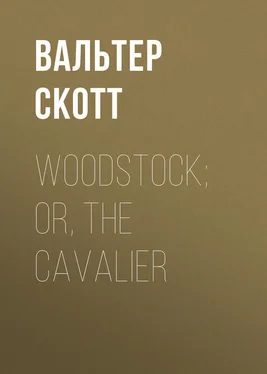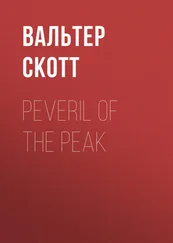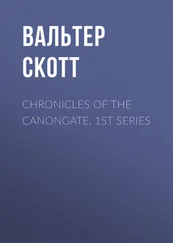Вальтер Скотт - Woodstock; or, the Cavalier
Здесь есть возможность читать онлайн «Вальтер Скотт - Woodstock; or, the Cavalier» — ознакомительный отрывок электронной книги совершенно бесплатно, а после прочтения отрывка купить полную версию. В некоторых случаях можно слушать аудио, скачать через торрент в формате fb2 и присутствует краткое содержание. Жанр: foreign_antique, foreign_prose, Альтернативная история, на английском языке. Описание произведения, (предисловие) а так же отзывы посетителей доступны на портале библиотеки ЛибКат.
- Название:Woodstock; or, the Cavalier
- Автор:
- Жанр:
- Год:неизвестен
- ISBN:нет данных
- Рейтинг книги:5 / 5. Голосов: 1
-
Избранное:Добавить в избранное
- Отзывы:
-
Ваша оценка:
- 100
- 1
- 2
- 3
- 4
- 5
Woodstock; or, the Cavalier: краткое содержание, описание и аннотация
Предлагаем к чтению аннотацию, описание, краткое содержание или предисловие (зависит от того, что написал сам автор книги «Woodstock; or, the Cavalier»). Если вы не нашли необходимую информацию о книге — напишите в комментариях, мы постараемся отыскать её.
Woodstock; or, the Cavalier — читать онлайн ознакомительный отрывок
Ниже представлен текст книги, разбитый по страницам. Система сохранения места последней прочитанной страницы, позволяет с удобством читать онлайн бесплатно книгу «Woodstock; or, the Cavalier», без необходимости каждый раз заново искать на чём Вы остановились. Поставьте закладку, и сможете в любой момент перейти на страницу, на которой закончили чтение.
Интервал:
Закладка:
Joceline was active on his side – more lights were obtained – more wood thrown on the fire – and the two newly-arrived strangers were introduced into Victor Lee's parlour, as it was called, from the picture over the chimney-piece, which we have already described. It was several minutes ere Colonel Everard could recover his general stoicism of deportment, so strongly was he impressed by finding himself in the apartment, under whose roof he had passed so many of the happiest hours of his life. There was the cabinet, which he had seen opened with such feelings of delight when Sir Henry Lee deigned to give him instructions in fishing, and to exhibit hooks and lines, together with all the materials for making the artificial fly, then little known. There hung the ancient family picture, which, from some odd mysterious expressions of his uncle relating to it, had become to his boyhood, nay, his early youth, a subject of curiosity and of fear. He remembered how, when left alone in the apartment, the searching eye of the old warrior seemed always bent upon his, in whatever part of the room he placed himself, and how his childish imagination was perturbed at a phenomenon, for which he could not account.
With these came a thousand dearer and warmer recollections of his early attachment to his pretty cousin Alice, when he assisted her at her lessons, brought water for her flowers, or accompanied her while she sung; and he remembered that while her father looked at them with a good-humoured and careless smile, he had once heard him mutter, "And if it should turn out so – why, it might be best for both," and the theories of happiness he had reared on these words. All these visions had been dispelled by the trumpet of war, which called Sir Henry Lee and himself to opposite sides; and the transactions of this very day had shown, that even Everard's success as a soldier and a statesman seemed absolutely to prohibit the chance of their being revived.
He was waked out of this unpleasing reverie by the approach of Joceline, who, being possibly a seasoned toper, had made the additional arrangements with more expedition and accuracy, than could have been expected from a person engaged as he had been since night-fall.
He now wished to know the Colonel's directions for the night.
"Would he eat anything?"
"No."
"Did his honour choose to accept Sir Henry Lee's bed, which was ready prepared?"
"Yes."
"That of Mistress Alice Lee should be prepared for the Secretary."
"On pain of thine ears – No," replied Everard.
"Where then was the worthy Secretary to be quartered?"
"In the dog-kennel, if you list," replied Colonel Everard; "but," added he, stepping to the sleeping apartment of Alice, which opened from the parlour, locking it, and taking out the key, "no one shall profane this chamber."
"Had his honour any other commands for the night?"
"None, save to clear the apartment of yonder man. My clerk will remain with me – I have orders which must be written out. – Yet stay – Thou gavest my letter this morning to Mistress Alice?"
"I did."
"Tell me, good Joceline, what she said when she received it?"
"She seemed much concerned, sir; and indeed I think that she wept a little – but indeed she seemed very much distressed."
"And what message did she send to me?"
"None, may it please your honour – She began to say, 'Tell my cousin Everard that I will communicate my uncle's kind purpose to my father, if I can get fitting opportunity – but that I greatly fear' – and there checked herself, as it were, and said, 'I will write to my cousin; and as it may be late ere I have an opportunity of speaking with my father, do thou come for my answer after service.' – So I went to church myself, to while away the time; but when I returned to the Chase, I found this man had summoned my master to surrender, and, right or wrong, I must put him in possession of the Lodge. I would fain have given your honour a hint that the old knight and my young mistress were like to take you on the form, but I could not mend the matter."
"Thou hast done well, good fellow, and I will remember thee. – And now, my masters," he said, advancing to the brace of clerks or secretaries, who had in the meanwhile sate quietly down beside the stone bottle, and made up acquaintance over a glass of its contents – "Let me remind you, that the night wears late."
"There is something cries tinkle, tinkle, in the bottle yet," said Wildrake, in reply.
"Hem! hem! hem!" coughed the Colonel of the Parliament service; and if his lips did not curse his companion's imprudence, I will not answer for what arose in his heart, – "Well!" he said, observing that Wildrake had filled his own glass and Tomkins's, "take that parting glass and begone."
"Would you not be pleased to hear first," said Wildrake, "how this honest gentleman saw the devil to-night look through a pane of yonder window, and how he thinks he had a mighty strong resemblance to your worship's humble slave and varlet scribbler? Would you but hear this, sir, and just sip a glass of this very recommendable strong waters?"
"I will drink none, sir," said Colonel Everard sternly; "and I have to tell you , that you have drunken a glass too much already. – Mr. Tomkins, sir, I wish you good night."
"A word in season at parting," said Tomkins, standing up behind the long leathern back of a chair, hemming and snuffling as if preparing for an exhortation.
"Excuse me, sir," replied Markham Everard sternly; "you are not now sufficiently yourself to guide the devotion of others."
"Woe be to them that reject!" said the Secretary of the Commissioners, stalking out of the room – the rest was lost in shutting the door, or suppressed for fear of offence.
"And now, fool Wildrake, begone to thy bed – yonder it lies," pointing to the knight's apartment.
"What, thou hast secured the lady's for thyself? I saw thee put the key in thy pocket."
"I would not – indeed I could not sleep in that apartment – I can sleep nowhere – but I will watch in this arm-chair. – I have made him place wood for repairing the fire. – Good now, go to bed thyself, and sleep off thy liquor."
"Liquor! – I laugh thee to scorn, Mark – thou art a milksop, and the son of a milksop, and know'st not what a good fellow can do in the way of crushing an honest cup."
"The whole vices of his faction are in this poor fellow individually," said the Colonel to himself, eyeing his protegé askance, as the other retreated into the bedroom, with no very steady pace – "He is reckless, intemperate, dissolute; – and if I cannot get him safely shipped for France, he will certainly be both his own ruin and mine. – Yet, withal, he is kind, brave, and generous, and would have kept the faith with me which he now expects from me; and in what consists the merit of our truth, if we observe not our plighted word when we have promised, to our hurt? I will take the liberty, however, to secure myself against farther interruption on his part."
So saying, he locked the door of communication betwixt the sleeping-room, to which the cavalier had retreated, and the parlour; – and then, after pacing the floor thoughtfully, returned to his seat, trimmed the lamp, and drew out a number of letters. – "I will read these over once more," he said, "that, if possible, the thought of public affairs may expel this keen sense of personal sorrow. Gracious Providence, where is this to end! We have sacrificed the peace of our families, the warmest wishes of our young hearts, to right the country in which we were born, and to free her from oppression; yet it appears, that every step we have made towards liberty, has but brought us in view of new and more terrific perils, as he who travels in a mountainous region, is by every step which elevates him higher, placed in a situation of more imminent hazard."
Читать дальшеИнтервал:
Закладка:
Похожие книги на «Woodstock; or, the Cavalier»
Представляем Вашему вниманию похожие книги на «Woodstock; or, the Cavalier» списком для выбора. Мы отобрали схожую по названию и смыслу литературу в надежде предоставить читателям больше вариантов отыскать новые, интересные, ещё непрочитанные произведения.
Обсуждение, отзывы о книге «Woodstock; or, the Cavalier» и просто собственные мнения читателей. Оставьте ваши комментарии, напишите, что Вы думаете о произведении, его смысле или главных героях. Укажите что конкретно понравилось, а что нет, и почему Вы так считаете.












